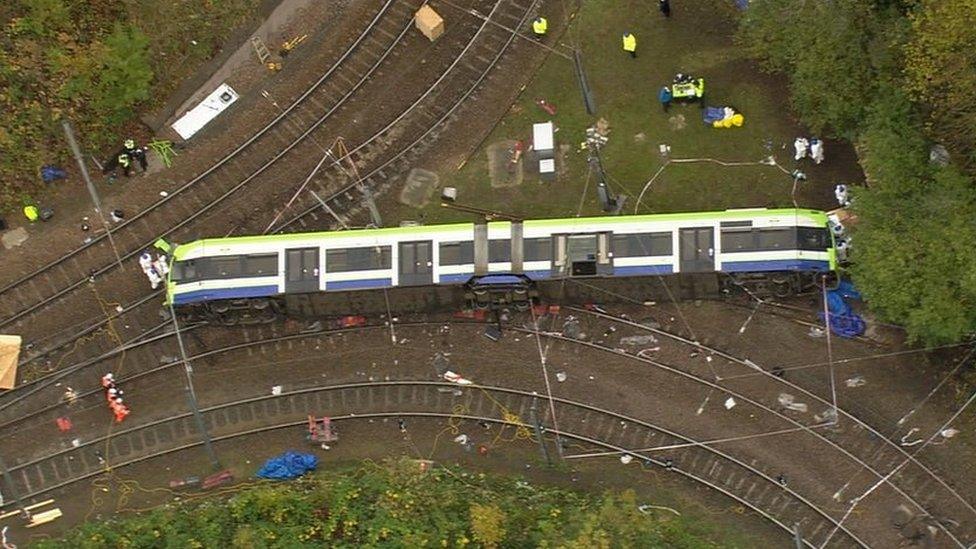Croydon tram crash: Transport firms to be sentenced over fatal derailment
- Published
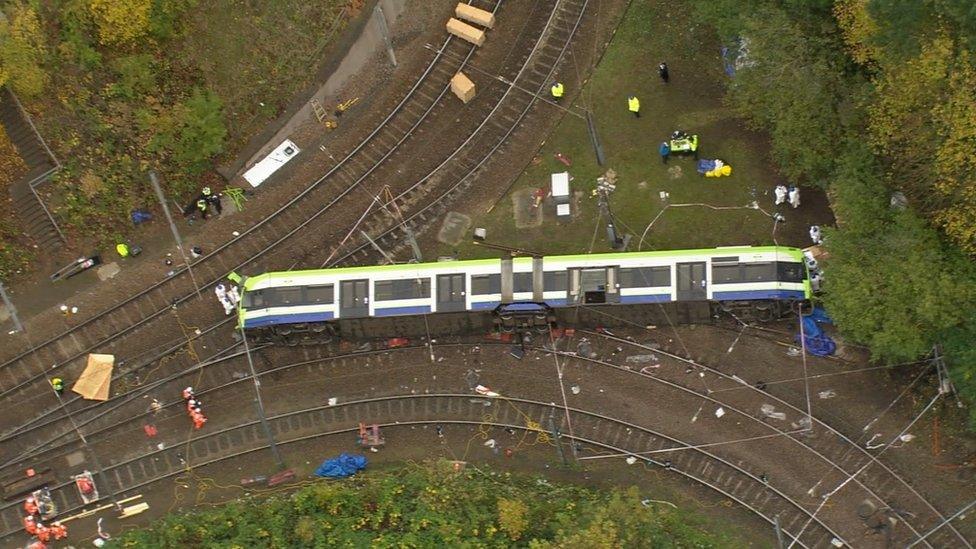
Tram company TOL and Transport for London have admitted failures relating to the fatal crash
A survivor of the Croydon tram derailment has said he fears his life will be "forever defined" by the crash.
Seven people died and 21 were badly hurt in the crash on 9 November 2016.
Stephen Kennedy's victim impact statement was among 10 read out to the Old Bailey on Monday.
Transport for London (TfL) and Tram Operations Limited (TOL) are to be sentenced in a three-day hearing, after accepting failings in their health and safety duties.
They have been prosecuted by the Office for Road and Rail.
The tram, carrying 69 passengers, was travelling at three times the speed limit when it toppled over on a sharp bend near the Sandilands stop.
The people who died were Dane Chinnery, 19, Philip Seary, 57, Dorota Rynkiewicz, 35, Robert Huxley, 63, and Philip Logan, 52, all from New Addington, and Donald Collett, 62, and Mark Smith, 35, both from Croydon.
The driver of the tram, Alfred Dorris, was cleared , 49, from Beckenham, south-east London, was cleared after blaming the crash on external factors including poor lighting and signage.
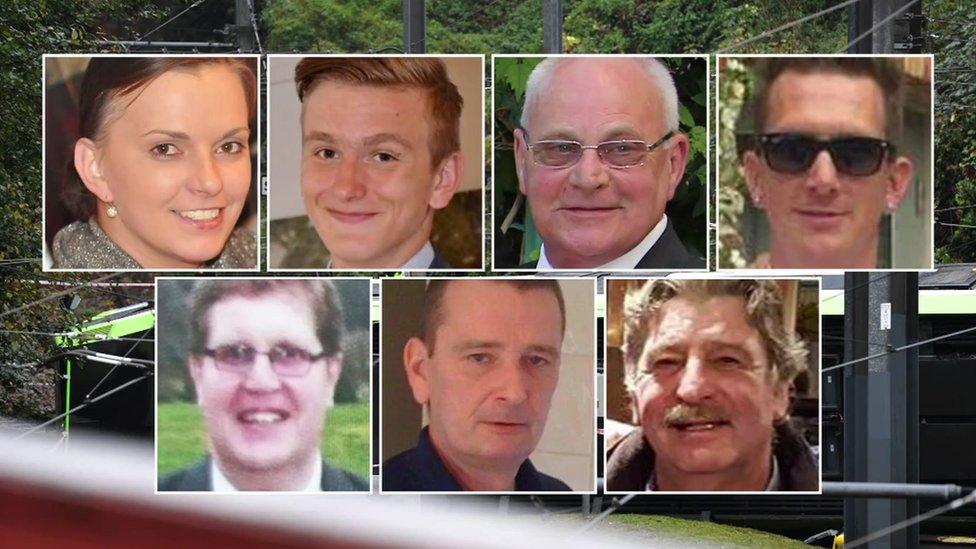
Dorota Rynkiewicz, Dane Chinnery, Donald Collett, Mark Smith, Phil Seary, Philip Logan and Robert Huxley were killed in the derailment
In a statement read by prosecutor Jonathan Ashley-Norman KC, Mr Kennedy, 31, described the crash and how it had changed his life.
"It was like everything was moving in slow motion," he said. "The carriage completely tipped over and I was thrown from my seat."
"Everything went dark. After a few moments the silence was broken by the most terrible screams.
"I tried to free my arm but it was completely trapped."
Mr Kennedy said the man sitting next to him, who had been talking to his wife on the phone moments before, was then lying on top of him, unresponsive.
"He had suffered a fatal head injury. This memory stays with me to this day."
"I remember other passengers stepping over me to get off the tram.
"I'm not sure how long I lay on the tram floor. The emergency services eventually arrived."
Mr Kennedy said he woke up at St George's Hospital in Tooting to be told that doctors had been unable to save his arm and it had to be amputated.
Mr Kennedy described his difficult recovery and learning to use a prosthetic limb as well as feelings of guilt for having survived.
He added: "I fear my life will forever be defined by what happened on 9 November 2016."
Among the other victim impact statements was Jean Smith's, the mother of Mark Smith, 35, who died in the crash.
Ms Smith wept as she spoke of her "nightmare journey" after he was killed in the "most brutal and avoidable way possible".
She said that no amount of money or justice would bring her son back but getting accountability may "bring some sense of peace".
"We have to live with the consequences of other people's actions for the rest of our lives. I'm living a life sentence. It should never have happened."
During the hearing, Tracy Angelo said her father Donald Collett was "very protective and loving" towards his family and friends.
On the effect of seeing aerial pictures of the crash site, she said: "We know our darling, beautiful dad was in amongst that devastation and all he was doing was going to work.
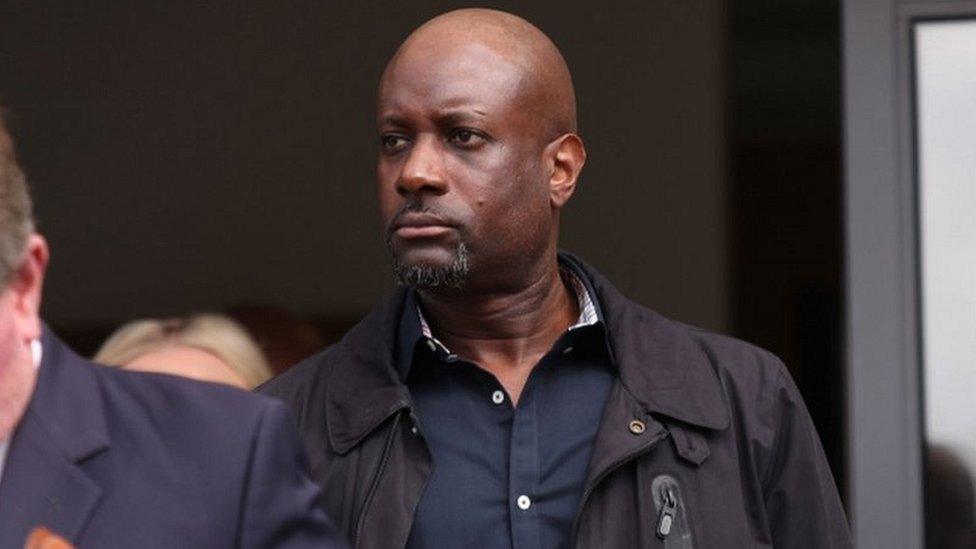
The tram Alfred Dorris was cleared of failing to take care at work
"We all remain completely devastated and individually we will never be the same again."
Mr Ashley-Norman said the main failing of the companies was to make a suitable risk assessment of such a high speed derailment happening.
He said there were "missed opportunities" over the years to take a closer look at the Sandilands curve but action was not taken.
There was "over-reliance on fallible humans" and tram drivers were "let down" by their employer TOL, and by TfL, the court was told.
During the trial of Mr Dorris, the same court heard how TfL and TOL had allowed a safety blind spot to develop and measures to control the risk of derailments were not in place.
The sentencing before Mr Justice Fraser is due to conclude on Thursday.

Follow BBC London on Facebook, external, Twitter , externaland Instagram, external. Send your story ideas to hellobbclondon@bbc.co.uk
Related topics
- Published19 June 2023
- Published19 June 2023
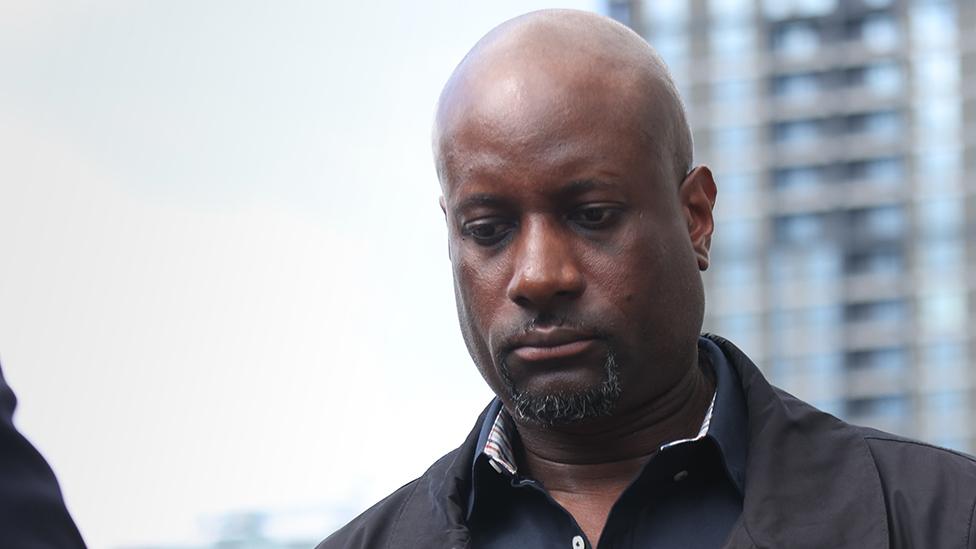
- Published10 June 2022
